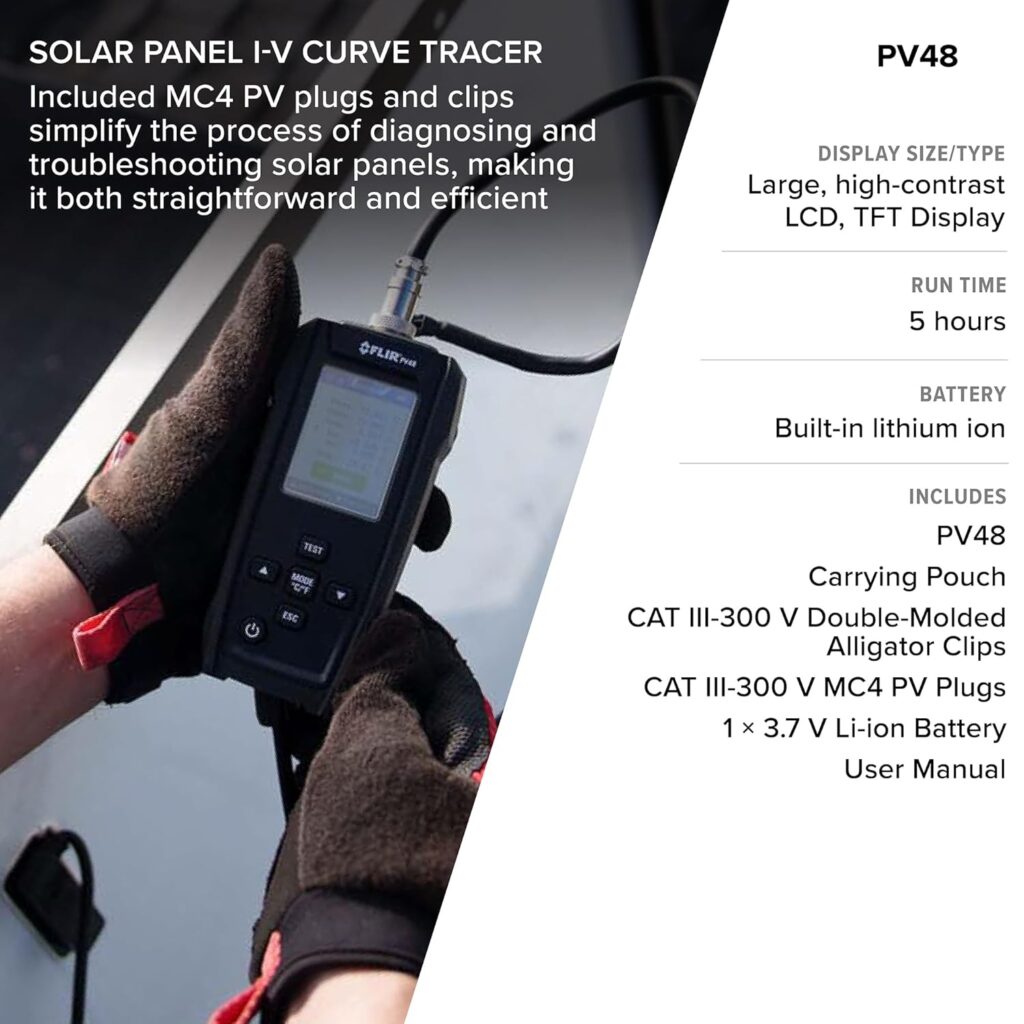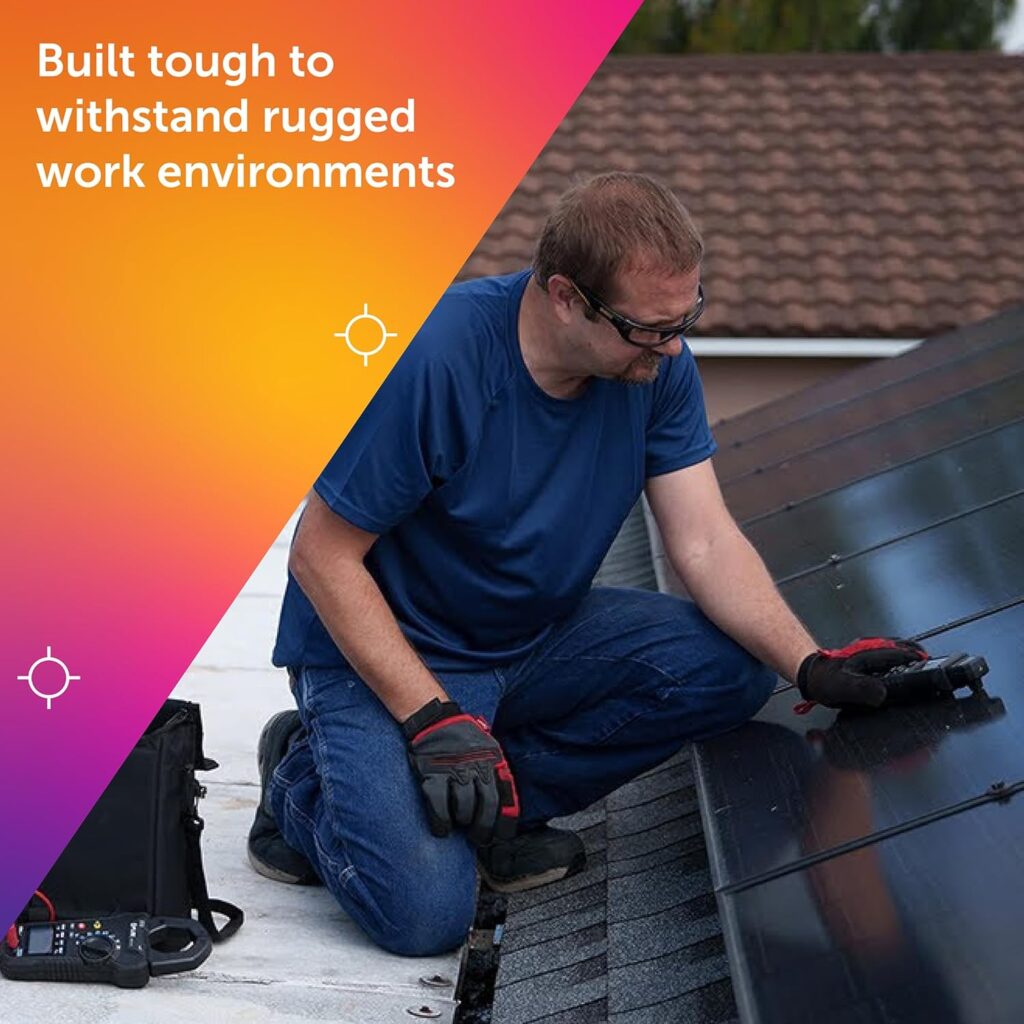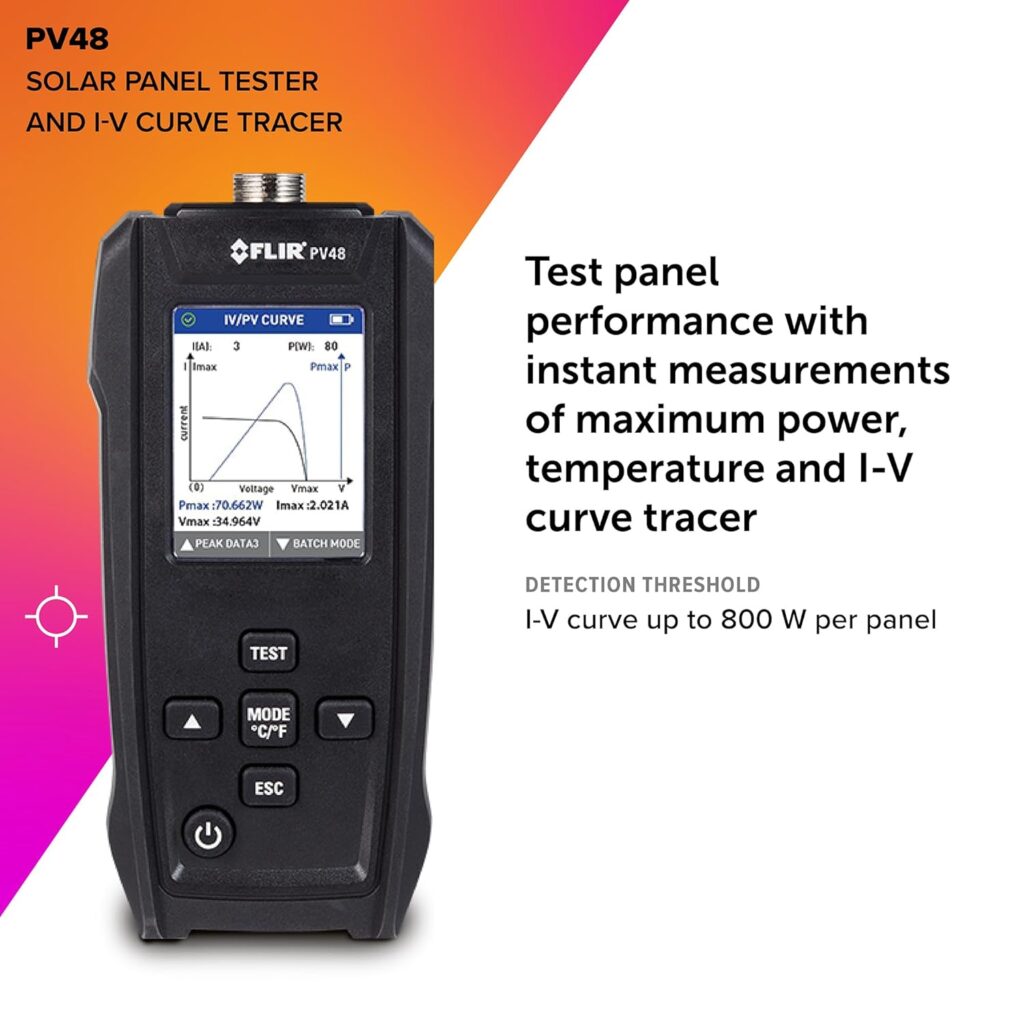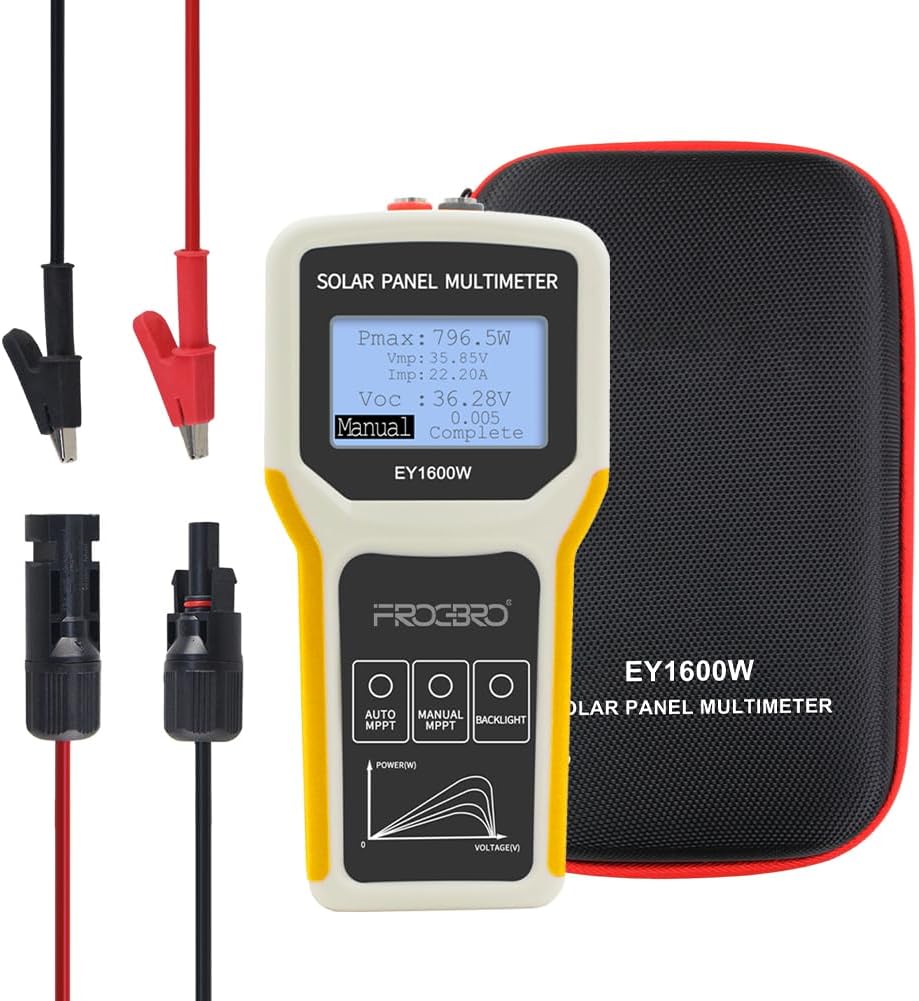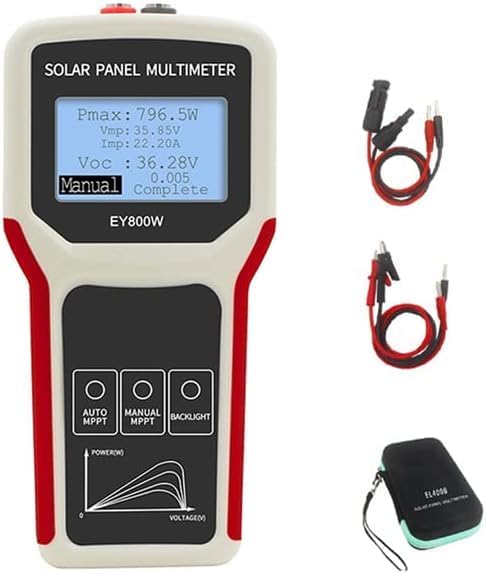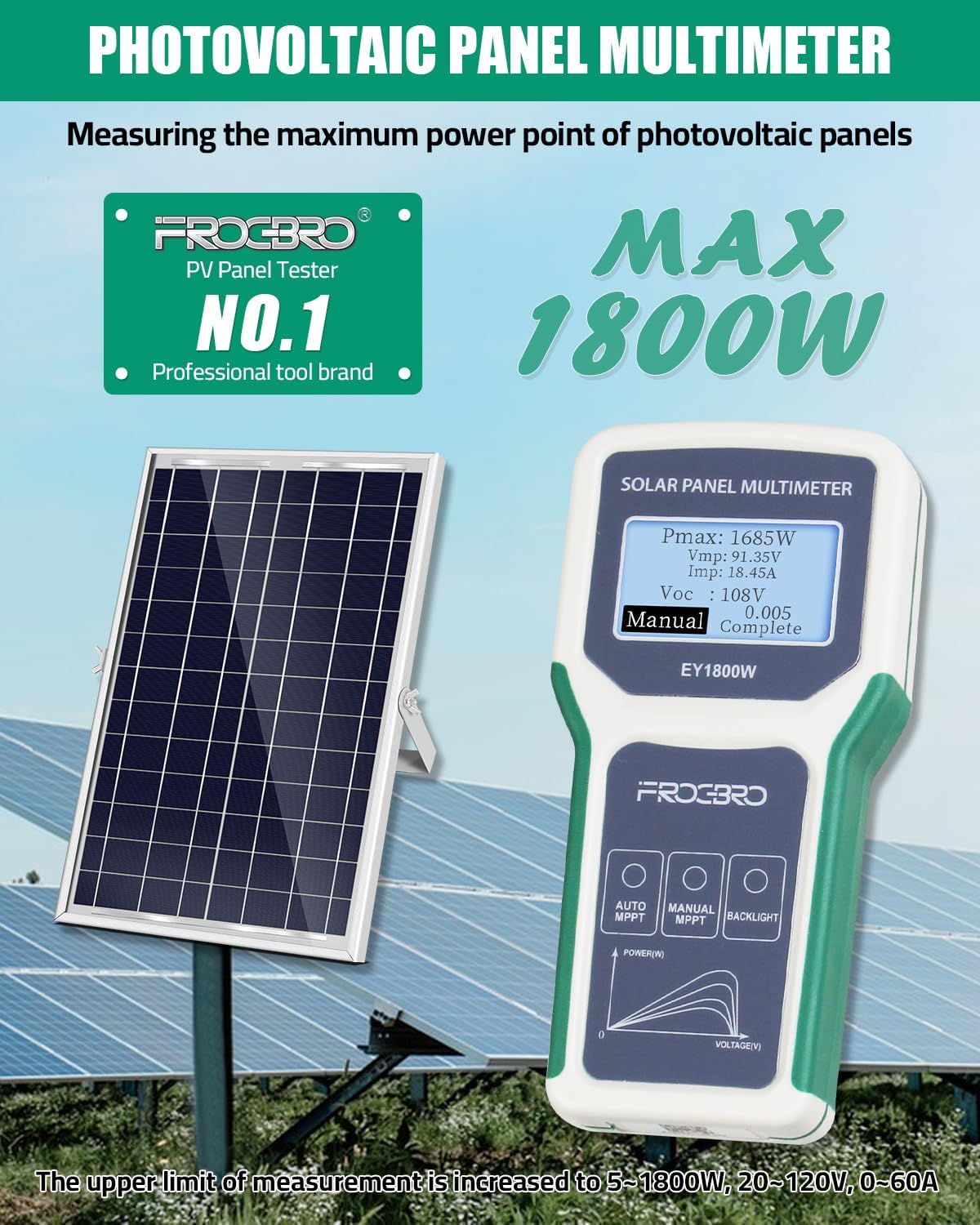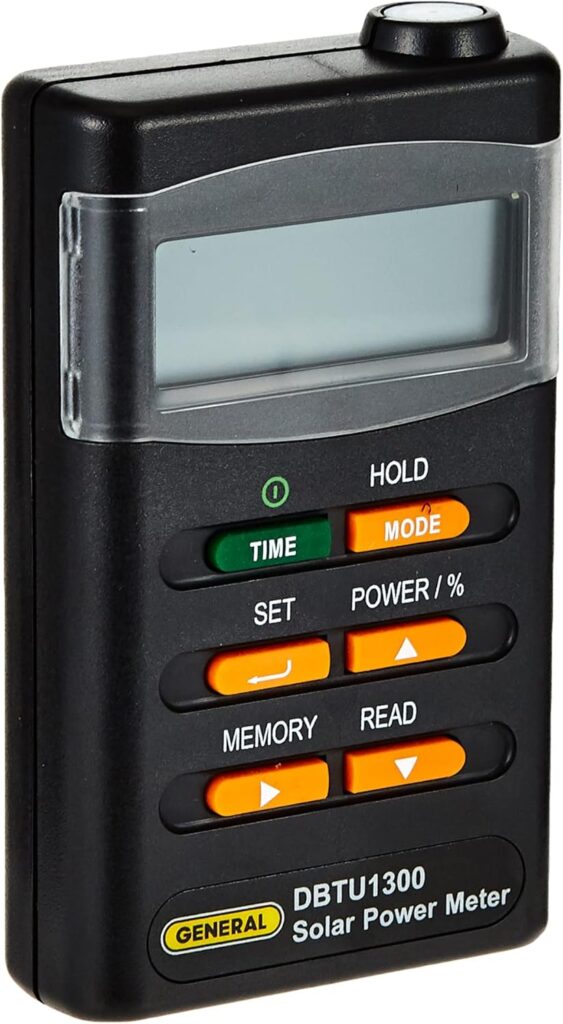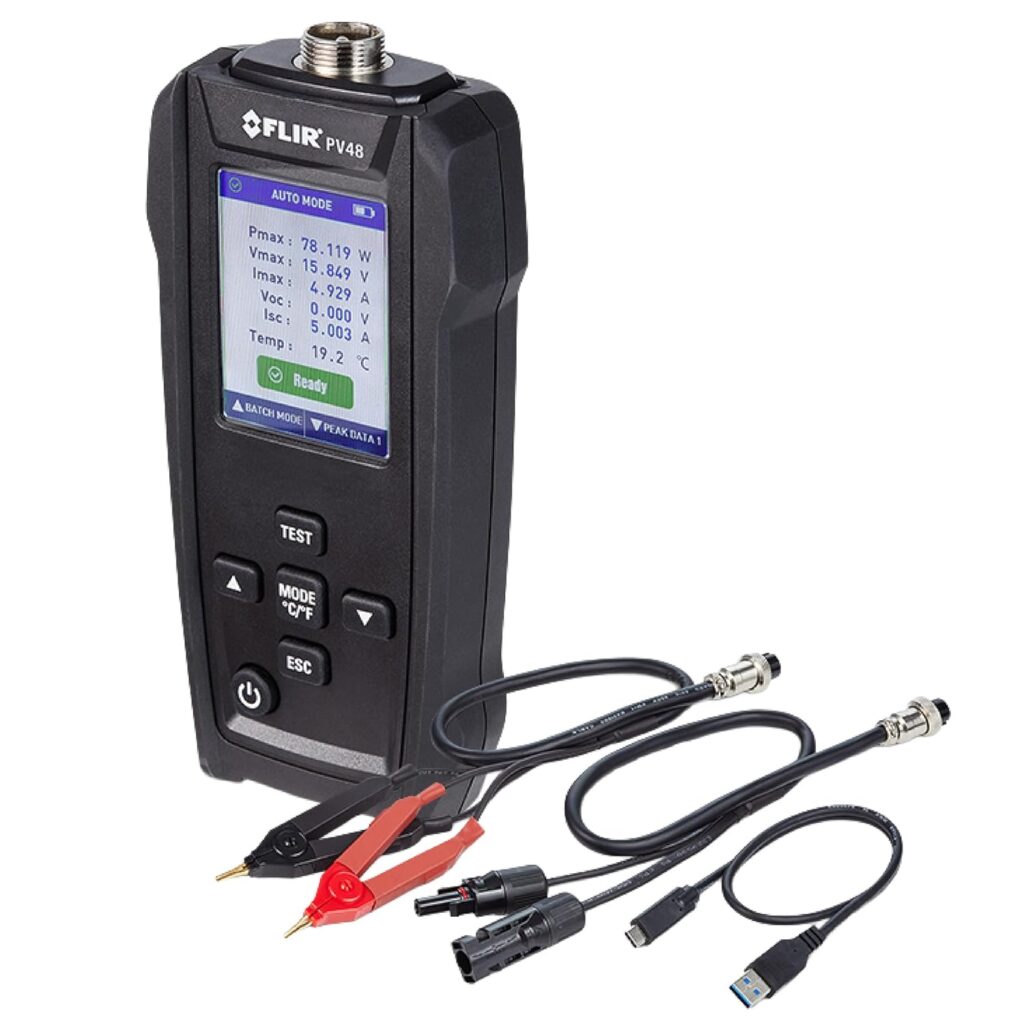A solar panel tester is a specialized instrument for assessing the performance and health of photovoltaic (PV) modules. These devices are essential for anyone who installs, maintains, or troubleshoots solar systems.
They help you measure open-circuit voltage (Voc), short-circuit current (Isc), and power output under real-world sunlight conditions. They can also identify under performing panels, wiring faults, or shading issues.
🏷️ Solar Panel Tester Deals ⭐⭐⭐⭐
Using a proper tester helps you go beyond guesswork and ensures your solar panels are performing at their rated capacity.
🔍 What Solar Panel Testers Are Used For
A solar panel tester allows you to:
- Measure voltage, current, and power (watts) of a solar module
- Detect weak or damaged panels in an array
- Check connections, shading effects, and mismatched outputs
- Verify performance during installation or maintenance
Higher-end models can even trace the I-V curve of a panel, showing its full performance profile and helping you diagnose subtle electrical or material faults.
🛠 Things to Look For When Choosing a Solar Panel Tester
Measurement Range and Type
Choose a tester that can handle the voltage range of your panels (for example, 12–60 V for smaller arrays, or higher for commercial systems). Make sure it can measure current and, ideally, display wattage directly.
Accuracy and Resolution
Higher accuracy helps detect small drops in output that indicate issues such as shading, degradation, or partial cell damage.
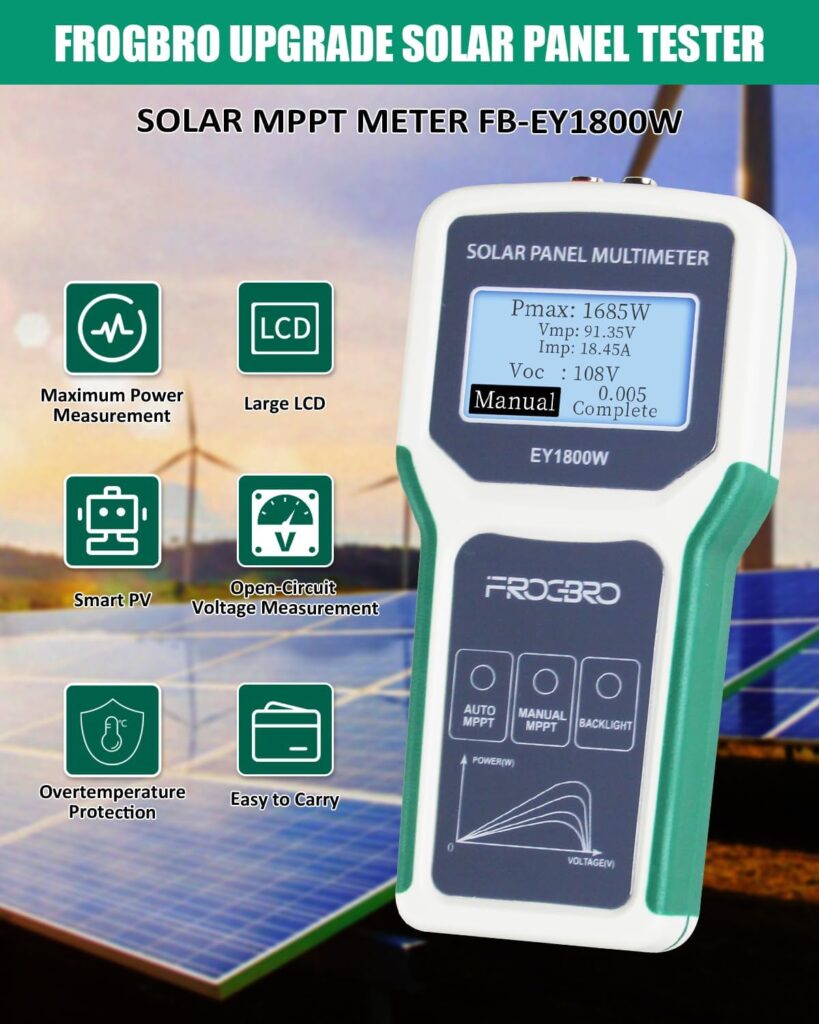
Safety and Durability
Pick a tester that’s properly insulated, weather-resistant, and rated for DC voltages used in PV systems. The display should remain readable in bright sunlight.
Display, Data, and Features
Look for:
- Backlit, large display
- MPPT (Maximum Power Point Tracking) support
- Data logging or USB/PC connectivity
- Audible or visual alerts for low output
Cost vs Use Case
For DIY users, a basic voltage/current/watt tester is often enough. Professionals or installers should consider testers with data logging, I-V curve tracing, and high safety ratings.
Support and Calibration
Professional testers often come with calibration certificates and support for recalibration, which is important for warranty and compliance testing.
✅ Recommended Solar Panel Testers on Amazon
Here are some of the best solar panel testers currently available on Amazon across various price ranges.
FLIR PV48 Solar Panel Tester & I-V Curve Tracer
High-end professional tool with full I-V curve tracing, temperature measurement, and detailed diagnostics for commissioning and warranty verification.
Best for: Commercial and professional solar system testing
FrogBro Solar Panel Tester – Photovoltaic Multimeter EY1600W
A robust, feature-rich solar panel tester supporting up to 1600 W. Ideal for installers or serious DIYers looking for MPPT and power measurement in one device.
Best for: Advanced DIY and small business solar installations
Solar Panel Multimeter Tester MPPT Power Meter EY800W
Compact and affordable tester that displays voltage, current, and watt output. Includes MPPT tracking for improved accuracy.
Best for: DIY users and small off-grid solar systems
Professional Solar Power Panel Tester Automatic/Manual 1800W
Entry-level automatic/manual solar tester capable of measuring voltage, current, and wattage on systems up to 1800 W.
Best for: Homeowners and small solar setups
General Tools DBTU1300 Digital Solar Power Meter
A professional-grade solar irradiance and power meter that measures sunlight intensity to evaluate panel efficiency and site conditions.
Best for: Professionals assessing irradiance and site performance
💡 Best Practices and Tips
- Test your panels under bright sunlight and measure open-circuit voltage (Voc) with no load connected.
- Be cautious when measuring short-circuit current (Isc) – use proper insulation and rated test leads.
- Compare readings from multiple panels in a string to identify weak or defective modules.
- Document your readings to monitor degradation or identify changes over time.
- Calibrate your tester regularly if you use it for professional or warranty work.
✅ Final Thoughts
A solar panel tester is a must-have tool for ensuring your panels perform efficiently and safely.
- For DIY users: A basic MPPT-capable tester like the Solar Panel Multimeter EY800W offers excellent value.
- For professionals: A more advanced tester such as the FLIR PV48 or General Tools DBTU1300 provides the precision and features needed for accurate diagnostics.
The right solar panel tester depends on your needs – but investing in one will save you time, improve energy performance, and help protect your investment in solar power.
